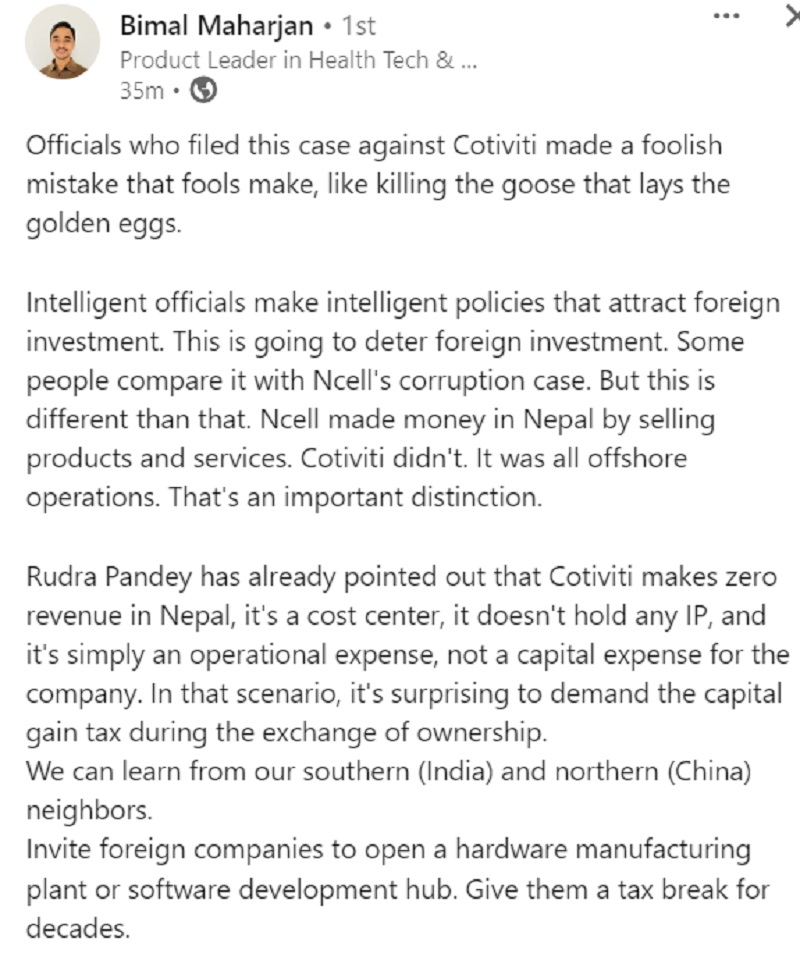Officials’ Move Against Cotiviti Criticized as Detrimental to Foreign Investment
3rd April 2024, Kathmandu
In a recent development, the case filed against Cotiviti has sparked widespread criticism, with analysts likening it to ‘killing the goose that lays the golden eggs’ in terms of its potential impact on foreign investment in Nepal.
Highlighting the folly of the move, experts emphasize the need for intelligent policies that attract foreign investment rather than deter it. Drawing a sharp contrast with past cases like Ncell’s corruption scandal, observers stress the importance of recognizing distinctions, particularly in the case of offshore operations.
Rudra Pandey Prominent figure in ICT Nepal Said:
Rudra Pandey, a prominent figure in the discussion, has underscored Cotiviti’s negligible revenue generation within Nepal, emphasizing its role as an operational expense rather than a capital expense for the company. This context makes the demand for capital gains tax during ownership exchange appear surprising.
Officials’ Move Against Cotiviti: Click Here
 In light of these developments, voices advocating for a strategic approach akin to neighboring countries like India and China have grown louder. Suggestions include incentivizing foreign companies to establish hardware manufacturing plants or software development hubs, and offering tax breaks over extended periods.
In light of these developments, voices advocating for a strategic approach akin to neighboring countries like India and China have grown louder. Suggestions include incentivizing foreign companies to establish hardware manufacturing plants or software development hubs, and offering tax breaks over extended periods.
Such policies, proponents argue, not only yield short-term tax gains but also foster skill development among the local workforce, paving the way for the emergence of a robust ecosystem conducive to entrepreneurship and innovation.
Drawing parallels with the trajectory of Chinese and Indian industries, advocates stress the importance of vision, long-term thinking, practical roadmaps, ecosystem building, and incentive design in shaping Nepal’s economic landscape.
Warning against shortsightedness, the discourse emphasizes the need to avoid jeopardizing Nepal’s attractiveness as a destination for offshore operations. Failure to adopt strategic measures risks marginalizing the country as a viable option for global entrepreneurs, ultimately hindering its economic growth potential.
As calls for prudent policymaking and strategic foresight reverberate, stakeholders urge authorities to heed the lessons from neighboring economies and seize the opportunity to cultivate a conducive environment for sustainable development and prosperity.






